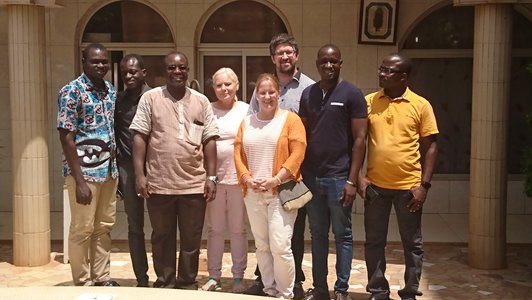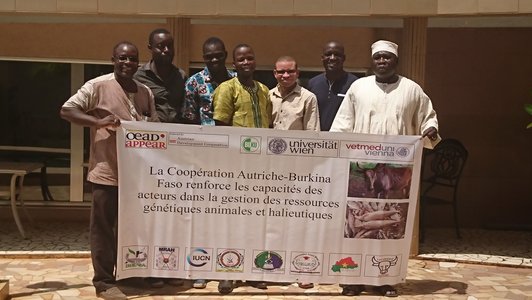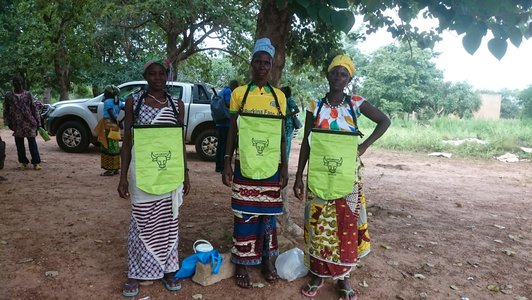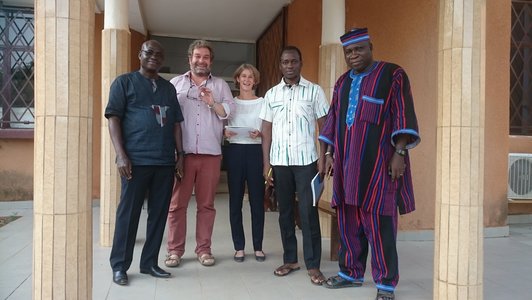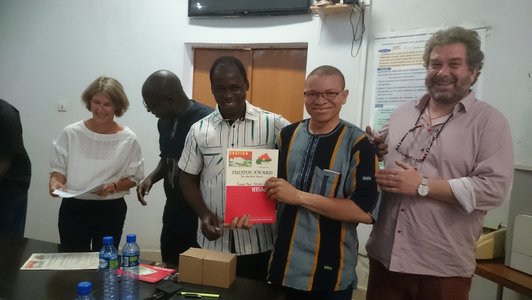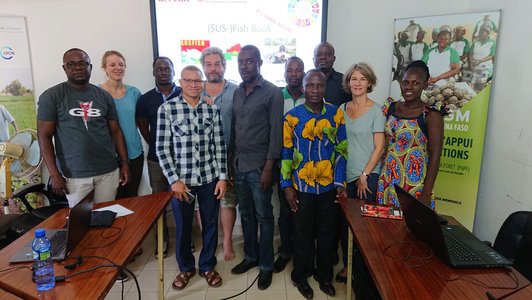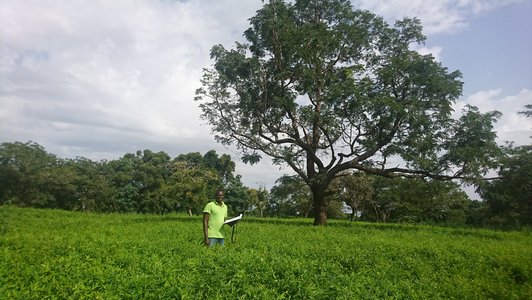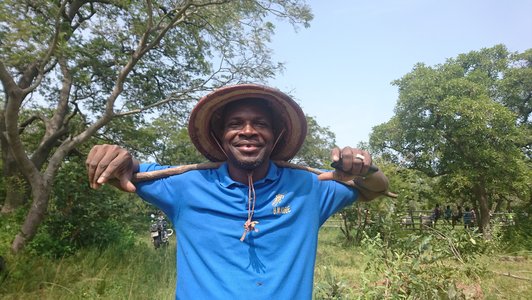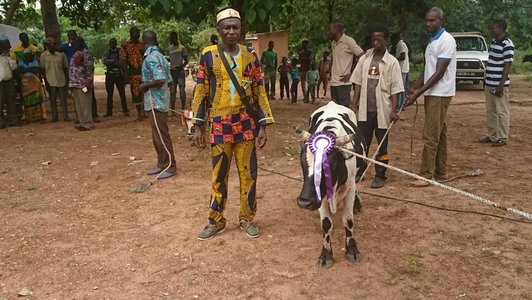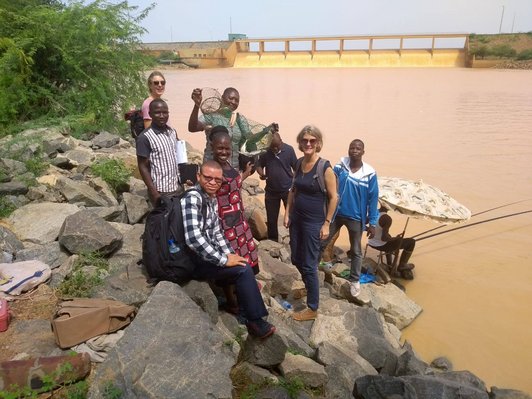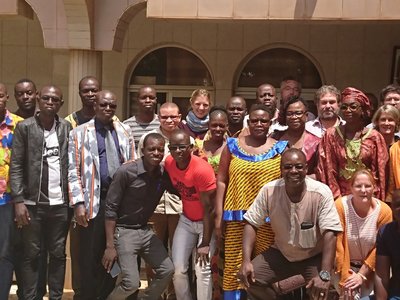

Both projects were initiated by former OeAD scholars who completed their doctoral studies at the University of Natural Resources and Life Sciences (BOKU), and continued their scientific cooperation beyond the scholarship. Dr. Raymond Ouedraogo and Dr. Albert Soudre are the national coordinators of SUSFISH+ and LoCaBreed and were responsible for the organization of these joint events.
Besides team meetings and excursions, a joint conference and a gender workshop took place, bringing together researchers and stakeholder from both projects to share findings and experiences. The conference opening was chaired by Urbain Couldiaty, Minister Delegate in charge of Scientific Research and Innovation who emphasized the importance of the cooperation of Austria and Burkina Faso and highlighted that the two projects had trained more than 50 Masters students, four finished PhD students and five still completing their work. In his view, by strengthening scientific research, innovation and North-South cooperation, these projects have acted as a lever to socio-economic development in Burkina Faso.
Throughout the day various topics from each project were presented. Contributions from SUSFISH+ included topics such as value chain analysis of fisheries by Jacques Somda (IUCN) and education on fish and water management in Burkina Faso from Prof. Adama Oueda.
The PhD student and APPEAR scholar Vincent-Paul Sanon discussed the socio-economic dimensions of sustainable fisheries management and Raymond Ouedraogo policy recommendations. LoCaBreed project members gave insights into cattle behaviour on pasture (Salifou Oédraogo) and ethno-veterinary plants (Lassina Traoré). Within the project three PhD scholars are financed to pursue their studies at BOKU. Two of them presented their preliminary results. Dominique Ouedraogo discussed the community-based breeding programme and Bienvenue Zoma the socio-economics of livestock and participatory methods. More inputs were delivered during lively discussions with the audience, including important stakeholders such as the Chief of the Kourbi area who is in charge of the local authority in a study area of SUSFISH. Elke Stinnig (APPEAR representative) was attending and actively participating, the Austrian Cooperation Office in Ouagadougou was represented by Hafoussiatou Sougue.
A key part of the programme was a joint workshop on gender held by Gabriele Slezak (University Vienna) and Jaqueline Sow (SUSFISH+ student) for team members as well as stakeholders. A keynote speech was given by Elke Stinnig about the role of gender concepts in international cooperation. This was followed by an exchange of practices in the two projects. Before an interactive group work insights were given into the application of gender mechanisms in research projects, including tools for gender mainstreaming, methods for application and major challenges in project cooperation. For the rest of the afternoon participants were asked to discuss and reflect in small groups on topics such as: gender relevant technical implementing tools (such as in workshop organization), participatory research methods and scientific practice, as well as gender challenges in project management and team building.

